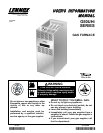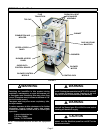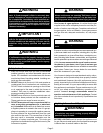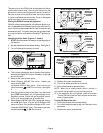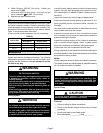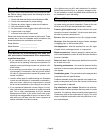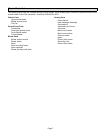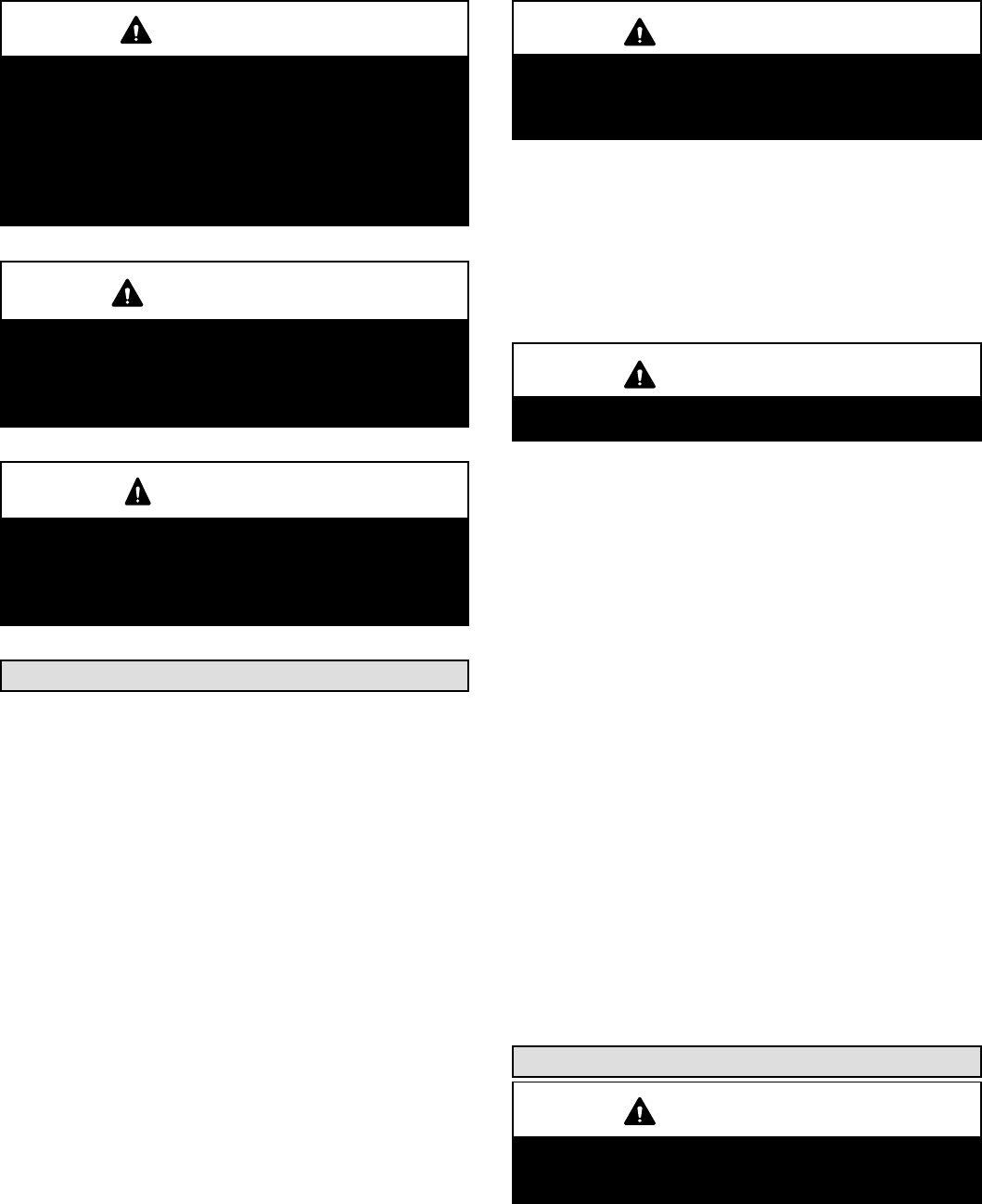
Page 3
WARNING
Do not use this furnace if any part has been underĆ
water. A flood-damaged furnace is extremely danĆ
gerous. Attempts to use the furnace can result in
fire or explosion. Immediately call a qualified serĆ
vice technician to inspect the furnace and to replace
all gas controls, control system parts, and electrical
parts that have been wet or to replace the furnace,
if deemed necessary.
IMPORTANT
Any additions, changes, or conversions required in
order for the appliance to satisfactorily meet the apĆ
plication needs must be made by a Lennox service
technician using factory specified and approved
parts.
WARNING
Improper installation, adjustment, alteration, service
or maintenance can cause property damage, personĆ
al injury or loss of life. Installation and service must
be performed by a qualified installer, service agency
or the gas supplier.
Safety Instructions
1 - Keep the furnace area clear and free of combustible
material, gasoline, and other flammable vapors and
liquids. If it is installed in an insulated area, the furnace
must be kept free of insulating material. Insulating maĆ
terial may be combustible.
2 - DO NOT obstruct air flow to unit. Unit must receive an
unobstructed flow of combustion and ventilating air.
DO NOT block or obstruct air openings on the furnace
or air openings to the area in which the furnace is
installed. Take care to maintain established clearĆ
ances surrounding the furnace.
3 - DO NOT store chlorine or fluorine products near unit
or introduce these products into the combustion air.
These products can cause furnace corrosion.
4 - DO NOT draw return air from a room where this furĆ
nace, or any other gas appliance (ie., a water heatĆ
er), is installed. When return air is drawn from a room,
a negative pressure is created in the room. If a gas apĆ
pliance is operating in a room with negative pressure,
the flue products can be pulled back down the vent
pipe and into the room. This reverse flow of the flue
gas may result in incomplete combustion and the
formation of carbon monoxide gas. This toxic gas
might then be distributed throughout the house by the
furnace duct system.
WARNING
The blower door must be securely in place when the
blower and burners are operating. Gas fumes, which
could contain carbon monoxide, can be drawn into
the living space resulting in personal injury or death.
Your furnace is a gas appliance. It is critical that the gas
supplied to the unit be completely burned to avoid the proĆ
duction of carbon monoxide gas. Complete combustion of
the gas requires, but is not limited to, correct gas pressure
and gas flow rate, adequate combustion, air, and proper
venting.
WARNING
Carbon monoxide gas is invisible, odorless and
toxic.
Exposure to carbon monoxide gas can cause personal injuĆ
ry and even death to all occupants, including pets. Any item
that is powered by or gives off heat from a combustion proĆ
cess (including lawn mowers, automobiles, and fireplaces)
has the potential to produce carbon monoxide gas. Because
of this, Lennox recommends the use of a carbon monoxĆ
ide detector in your home, even if you do not own gas
appliances. Reliable detectors are available at reasonable
retail prices. Contact your Lennox dealer for more details
about this investment in your safety.
Your furnace is designed to meet standards set by nationĆ
al agencies, and to operate safely when properly installed
and maintained. However, the unit's performance can be
greatly impacted by the individual installation and the opĆ
erating environment. It is your responsibility to ensure that
this appliance is maintained. Proper maintenance is critiĆ
cal for your safety and the satisfactory operation of the
product. Lennox strongly recommends annual inĆ
spection and maintenance of this appliance. Contact
your Lennox dealer for an inspection by a qualified service
technician.
Lighting Information & Operation
WARNING
If you do not follow these instructions exactly, a fire
or explosion may result causing property damage,
personal injury or death.
BEFORE LIGHTING smell all around the appliance area
for gas. Be sure to smell next to the floor because some gas
is heavier than air and will settle on the floor.



